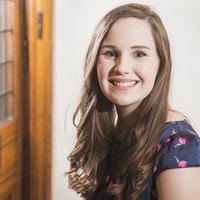- Postgraduate Student at The University of Manchester - MA Educational Leadership.edit
Research Interests:
Research Interests:
Research Interests:
Research Interests:
English Language for Education Dissertation of the Year 2016. Mathematics seems to be both revered and reviled by society, as those who possess mathematical knowledge are highly respected, while the subject itself is often perceived as... more
English Language for Education Dissertation of the Year 2016.
Mathematics seems to be both revered and reviled by society, as those who possess mathematical knowledge are highly respected, while the subject itself is often perceived as an abstract and isolating practice. Children’s mathematical beliefs have been found to impact upon interest, enjoyment and motivation in this subject, influencing attainment and career choices. This research utilizes McDonough & Sullivan’s (2014) creative interviewing methods, to explore year one children’s beliefs about mathematics and mathematicians. These children are at a critical point of transition in their educational journey, experiencing formal mathematical pedagogy for the first time. A “what is maths?” task has been used to examine beliefs about the nature and difficulty of mathematics; also, a visual vignette activity, presenting a child’s drawing of a stereotypical mathematician, has been used to promote discussion about the role of mathematicians. Findings indicate that beliefs about the nature of mathematics are influenced by pedagogical approach and, while children are able to express mathematical activity both inside and outside of the school environment, these beliefs are generally framed by children’s experiences of the classroom. The research also finds that year one children perceive the role of mathematicians as classroom teachers of mathematics, utilizing their knowledge of ‘teacher as expert’ to construct beliefs in line with their own experiences.
Mathematics seems to be both revered and reviled by society, as those who possess mathematical knowledge are highly respected, while the subject itself is often perceived as an abstract and isolating practice. Children’s mathematical beliefs have been found to impact upon interest, enjoyment and motivation in this subject, influencing attainment and career choices. This research utilizes McDonough & Sullivan’s (2014) creative interviewing methods, to explore year one children’s beliefs about mathematics and mathematicians. These children are at a critical point of transition in their educational journey, experiencing formal mathematical pedagogy for the first time. A “what is maths?” task has been used to examine beliefs about the nature and difficulty of mathematics; also, a visual vignette activity, presenting a child’s drawing of a stereotypical mathematician, has been used to promote discussion about the role of mathematicians. Findings indicate that beliefs about the nature of mathematics are influenced by pedagogical approach and, while children are able to express mathematical activity both inside and outside of the school environment, these beliefs are generally framed by children’s experiences of the classroom. The research also finds that year one children perceive the role of mathematicians as classroom teachers of mathematics, utilizing their knowledge of ‘teacher as expert’ to construct beliefs in line with their own experiences.
